#International humanitarian law
Text







Source
73 notes
·
View notes
Text
Let's not devolve into right-wing extremism whilst advocating for basic human rights over here. I see a lot of Jews who are angry at the double standards levied at them from organizations like the United Nations. The UN has a big corruption problem, we all know this.
But we cannot let the perfect get in the way of the good, either. Refusing to have a global international organization like the United Nations as a whole is anti-democratic and illiberal. Whether you advocate for the UN to be replaced by a less corrupted international system or whether you advocate for the UN itself to evolve into this system: we want international cooperation. We want international law.
How the UN is doing things is very flawed, I agree. It accuses Israel of being uniquely and specially evil whilst giving Maduro and Jinping a seat at the table. Nevertheless, we want Palestine to focus on genuine state-building. If they did that, they would improve the lives of their citizens who would be less influenced by radical ideology. If they did that they would have robust social programs aimed at educating their populace and integrating with their neighbors as opposed to fighting them all.
Palestinians having a country of their own is a good thing. Gaza being a country is a good thing. Palestinians being prosperous and peaceful is a good thing. Dissolving the West Bank settlements is understandably a complicated issue, because these settlements do provide insulation in the form of security against terrorism.
But they're illegal for a good reason, because there is an extremely unequal systemic institutional governance there and because the settlers are emboldened by extremists in the government to perpetuate violence, theft and dehumanization. It's obviously strange to see an anarchist advocating for these systems, but I understand the world we live in. I don't claim to be a real, true-blue anarchist. I believe in mutual aid, cooperation, voluntary immigration, and close-knit communities.
I don't believe in policing as it is now. It is possible for us to have loosely-networked communities of people who are provided resources and protection by elected leadership, who still maintain their individual autonomy.
It's not black and white, it's never been black and white. International organization is important, it's how we progress socially and technologically. Land, citizenship is different than a state apparatus, but we can't ignore that right now, state-building and government is a part of international organization.
#politics#weemie#jumblr#israel#palestine#gaza#i/p#mutual aid#anarchism#united nations#human rights#international criminal court#international humanitarian law
66 notes
·
View notes
Text
middleeasteye Nisreen Abbas has been forced to leave her home, a school, and a hospital over the course of the war. Now, in a refugee camp, she recounts how she was stripped naked and barefoot by Israeli soldiers and had all her belongings taken by them when she passed through one of their checkpoints.
#palestine#free palestine#free gaza#free west bank#gaza#gaza strip#israel#genocide#social justice#human rights#womans rights#middle east#jerusalem#tel aviv#rafah#united nations#international humanitarian law#war crimes#crimes against humanity#palestine news#news update#war on gaza#gaza news#important#signal boost
77 notes
·
View notes
Text


Emmanuelle Chaze: That 80 years after the end of WW2, international institutions & community still haven't found ways to force terrorist states to comply with international law is infuriating. It also shows the limits of IHL because of a lack of leadership & will at a global scale to enforce it.
I say that as someone who graduated in International Humanitarian Law in 2022. I was mostly studying for my exams in bunkers in Kyiv and Kharkiv region to the sound of explosions, my eyes on the theory and my ears on its inefficiency, inapplicability, powerlessness.
The legal framework is there. Most countries have agreed on principle to apply it. But as long as it's not firmly binding, as long as some will avoid having anything to do with accountability on a global scale, states are bound to do whatever pleases them at any given time.
#Ukraine#Kyiv#emmanuelle chaze#ihl#international humanitarian law#fuck the icrc#quote#screen reader friendly
21 notes
·
View notes
Text
ICJ calls on Israel to implement provisional measures in Rafah
It seems the opposite of logic for them to say this but then refuse to do anything about it. They had given Israel 30 days to stop and when they instead stepped up the bombings the ICJ just wags its finger and little else. The Court case resumes on Monday so we'll see what happens but I personally am not going to hold my breath.
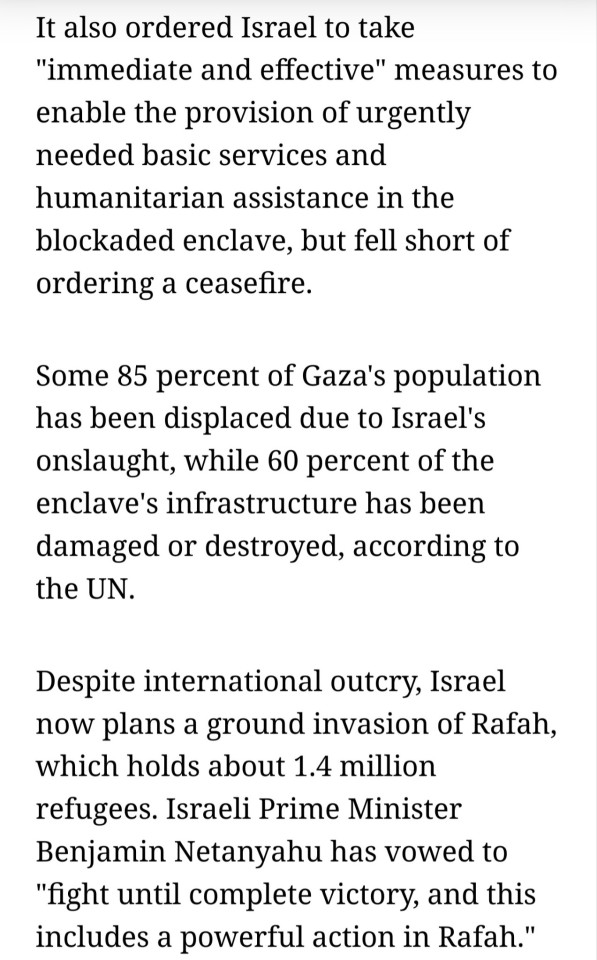

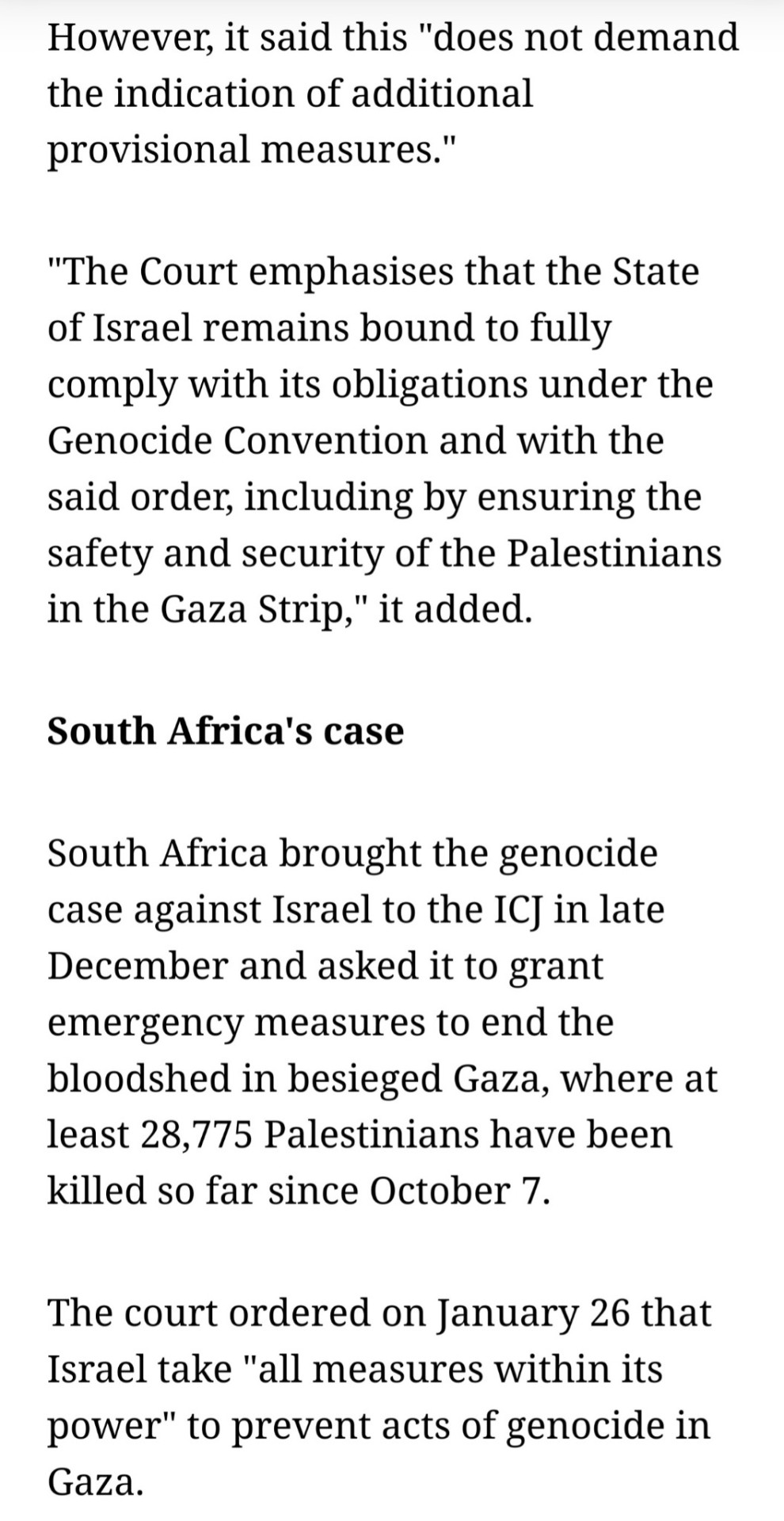

#rafah#all eyes on rafah#icj hearing#icj#icj case#icj ruling#international humanitarian law#international court of justice#humanitarian crisis#apartheid#save palestine#ethnic cleansing#israel is an apartheid state#seek truth#free palestine 🇵🇸#genocide#illegal occupation#israel is committing genocide#israeli war crimes#propaganda kills#double standards#israeli lies#this was NEVER about Hamas#zionism is nazism for the 21st century#accountability isn't antisemitism#israel is a terrorist state#boycott divest sanction#stolen lives#stolen land#silenced voices
32 notes
·
View notes
Text
Alexander Smith’s PowerPoint presentation doesn’t appear designed to court controversy. The slides, focused on declining maternal health in Gaza, cite public health data from the United Nations and World Health Organization. His employer, the U.S. Agency for International Development, had selected him to share it at the government agency’s Global Gender Equality Conference.
But just before the conference, an issue of contention emerged.
A single slide mentioned international humanitarian law in context of the health crisis in Gaza. USAID staff cited the slide and discussion of international law as potential fodder for leaks, documents and emails Smith shared with The Intercept show. Despite Smith’s willingness to make revisions, his presentation was eventually cancelled. On the last day of the conference, he found himself out of a job.
“I thought it is really obscene that misinformation can go out freely out into the world [about Gaza], but I can’t talk about the reality of starving pregnant women,” said Smith, who worked as a contracted senior adviser at USAID on gender and material health. “We can’t even whisper about that in a conference on that topic.”
In a statement to The Intercept, the agency declined to comment on personnel matters but said Smith was not forced out over the presentation. “As an Agency, we value and intentionally seek out a diversity of viewpoints,” said a USAID spokesperson.
Smith, who is both a lawyer and public health expert, had worked for USAID for four years. In February, he submitted an abstract for his presentation — titled “An Intersectional Gender Lens in Gaza: Ethnicity, Religion, Geography, Legal Status, and Maternal/Child Health Outcomes” — which was accepted for the small USAID conference. He was scheduled to present on May 22 in Washington, D.C.
On May 10, two weeks before the conference, the State Department issued a report — dubbed the “NSM-20” report — about Israel’s compliance with international law. As The Intercept reported, USAID officials had urged Secretary of State Antony Blinken to find Israel’s commitments to international law were not credible based on its conduct in Gaza since October.
Blinken’s report hedged considerably, expressing “deep concerns” about “action and inaction” by the Israeli government that resulted in “insufficient” aid delivery to Gaza, while concluding Israel was not “prohibiting or otherwise restricting the transport or delivery of U.S. humanitarian assistance.”
At the conference, Smith wanted to touch on international humanitarian law. His slides on the topic did not mention Israel specifically, the presentation shows.
“I wasn’t planning to stand up and yell ‘Israel is committing genocide,’” Smith said. “I was stating the laws.”
continue reading
#us#U.S. Agency for International Development (USAID)#Global Gender Equality Conference#presentation cancellation#gaza healthcare#international humanitarian law#israeli-occupied gaza#free palestine
7 notes
·
View notes
Text
Exclusive: Some US officials say in internal memo Israel may be violating international law in Gaza | Reuters
Some senior U.S. officials have advised Secretary of State Antony Blinken that they do not find "credible or reliable" Israel's assurances that it is using U.S.-supplied weapons in accordance with international humanitarian law, according to an internal State Department memo reviewed by Reuters.
Other officials upheld support for Israel's representation.
Under a National Security Memorandum (NSM) issued by President Joe Biden in February, Blinken must report to Congress by May 8 whether he finds credible Israel's assurances that its use of U.S. weapons does not violate U.S. or international law.
By March 24, at least seven State Department bureaus had sent in their contributions to an initial "options memo" to Blinken. Parts of the memo, which has not been previously reported, were classified.
The submissions to the memo provide the most extensive picture to date of the divisions inside the State Department over whether Israel might be violating international humanitarian law in Gaza.
"Some components in the department favored accepting Israel's assurances, some favored rejecting them and some took no position," a U.S. official said.
A joint submission from four bureaus - Democracy Human Rights & Labor; Population, Refugees and Migration; Global Criminal Justice and International Organization Affairs – raised "serious concern over non-compliance" with international humanitarian law during Israel's prosecution of the Gaza war.
The assessment from the four bureaus said Israel's assurances were "neither credible nor reliable." It cited eight examples of Israeli military actions that the officials said raise "serious questions" about potential violations of international humanitarian law.
These included repeatedly striking protected sites and civilian infrastructure; "unconscionably high levels of civilian harm to military advantage"; taking little action to investigate violations or to hold to account those responsible for significant civilian harm and "killing humanitarian workers and journalists at an unprecedented rate."
The assessment from the four bureaus also cited 11 instances of Israeli military actions the officials said "arbitrarily restrict humanitarian aid," including rejecting entire trucks of aid due to a single "dual-use" item, "artificial" limitations on inspections as well as repeated attacks on humanitarian sites that should not be hit.
Another submission to the memo reviewed by Reuters, from the bureau of Political and Military Affairs, which deals with U.S. military assistance and arms transfers, warned Blinken that suspending U.S. weapons would limit Israel's ability to meet potential threats outside its airspace and require Washington to re-evaluate "all ongoing and future sales to other countries in the region."
Any suspension of U.S. arms sales would invite "provocations" by Iran and aligned militias, the bureau said in its submission, illustrating the push-and-pull inside the department as it prepares to report to Congress.
The submission did not directly address Israel's assurances.
Inputs to the memo from the Office of the Special Envoy to Monitor and Combat Antisemitism and U.S. ambassador to Israel Jack Lew said they assessed Israel's assurances as credible and reliable, a second U.S. official told Reuters.
The State Department's legal bureau, known as the Office of the Legal Adviser, "did not take a substantive position" on the credibility of Israel's assurances, a source familiar with the matter said.
State Department spokesperson Matthew Miller said the agency doesn't comment on leaked documents.
"On complex issues, the Secretary often hears a diverse range of views from within the Department, and he takes all of those views into consideration," Miller said.
MAY 8 REPORT TO CONGRESS
When asked about the memo, an Israeli official said: "Israel is fully committed to its commitments and their implementation, among them the assurances given to the U.S. government."
The White House did not respond to a request for comment.
Biden administration officials repeatedly have said they have not found Israel in violation of international law.
Blinken has seen all of the bureau assessments about Israel's pledges, the second U.S. official said.
Matthew Miller on March 25 said the department received the pledges. However, the State Department is not expected to render its complete assessment of credibility until the May 8 report to Congress.
Further deliberations between the department's bureaus are underway ahead of the report's deadline, the U.S. official said.
USAID also provided input to the memo. "The killing of nearly 32,000 people, of which the GOI (Government of Israel) itself assesses roughly two-thirds are civilian, may well amount to a violation of the international humanitarian law requirement," USAID officials wrote in the submission.
USAID does not comment on leaked documents, a USAID spokesperson said.
The warnings about Israel's possible breaches of international humanitarian law made by some senior State Department officials come as Israel is vowing to launch a military offensive into Rafah, the southern-most pocket of the Gaza Strip that is home to over a million people displaced by the war, despite repeated warnings from Washington not to do so.
Israel's military conduct has come under increasing scrutiny as its forces have killed 34,000 Palestinians in Gaza, according to the enclave's health authorities, most of them women and children.
Israel's assault was launched in response to the Hamas attack on Israel on Oct. 7, in which Israel says 1,200 people were killed and 250 others taken hostage.
The National Security Memorandum was issued in early February after Democratic lawmakers began questioning whether Israel was abiding by international law.
The memorandum imposed no new legal requirements but asked the State Department to demand written assurances from countries receiving U.S.-funded weapons that they are not violating international humanitarian law or blocking U.S. humanitarian assistance.
It also required the administration to submit an annual report to Congress to assess whether countries are adhering to international law and not impeding the flow of humanitarian aid.
If Israel's assurances are called into question, Biden would have the option to "remediate" the situation through actions ranging from seeking fresh assurances to suspending further U.S. weapons transfers, according to the memorandum.
Biden can suspend or put conditions on U.S. weapons transfers at any time.
He has so far resisted calls from rights groups, left-leaning Democrats and Arab American groups to do so.
But earlier this month he threatened for the first time to put conditions on the transfer of U.S. weapons to Israel, if it does not take concrete steps to improve the dire humanitarian situation in Gaza.
(This story has been refiled to remove an extraneous paragraph)
#us politics#world politics#news#reuters#israel#gaza#Palestine#rafah#state department#Antony Blinken#National Security Memorandum#biden administration#international humanitarian law#Democracy Human Rights & Labor#Population Refugees and Migration#Global Criminal Justice#International Organization Affairs#Political and Military Affairs#Office of the Legal Adviser#Matthew Miller#USAID#2024
7 notes
·
View notes
Text




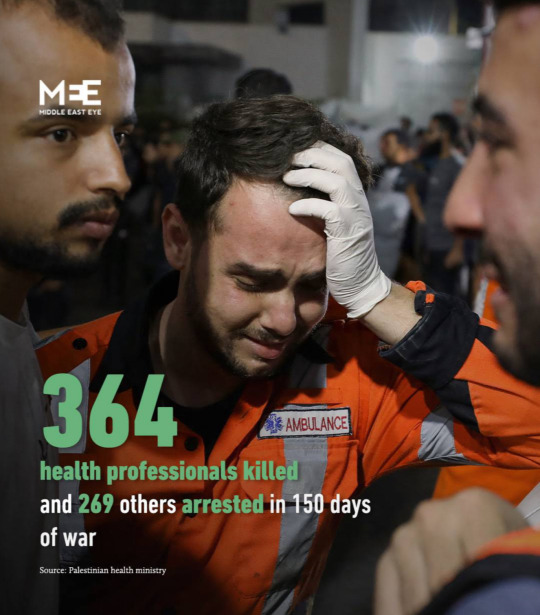
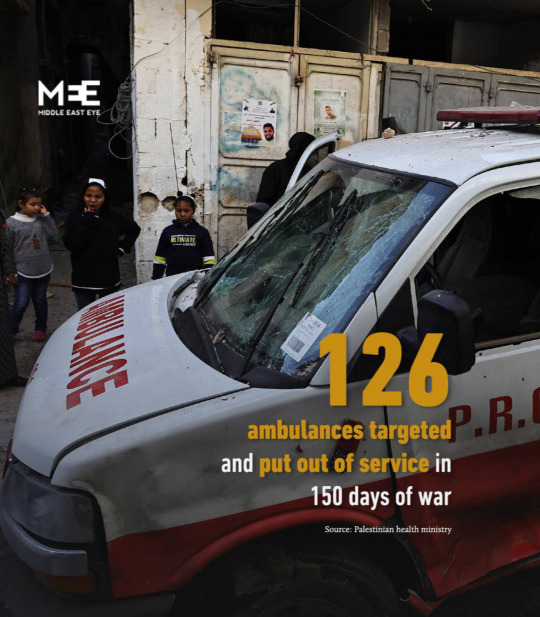
#Middle East Eye 👁️#Gaza#Forever Palestine 🇵🇸#Destruction of Gaza Health Care System#151 Days of War#Illegal Regime of Terrorist & Apartheid Isra-hell#United Nations 🇺🇳#International Humanitarian Law
8 notes
·
View notes
Text
Sign the petition to urge ICJ to invite journalists covering the war in gaza.
@palesoftangel
@apollos-olives
#free palestine#palestine#wizard bisan#motaz azaiza#icj#genocide#jurnalists#international humanitarian law#international court of justice#south africa#indonesia#mexico#chile
10 notes
·
View notes
Text
EVIDENCE, INNOVATION AND EDUCATION
GOOD PRACTICES TO BUILD A CULTURE OF RESPECT FOR IHL ACROSS GENERATIONS
Aligned with the 34th International Conference’s theme of building “a universal culture of compliance with IHL,” this event will bring together members of the Red Cross and Red Crescent Movement, alongside external partners in support of the idea that education on international humanitarian law, principles and values, is a cornerstone to achieving this shared vision.
Using testimonies, visuals, and discussion, panelists will present their experiences for effectively engaging different generations in IHL advocacy speaking to three key pillars: evidence, innovation and good practices.
Here are below a list of links to key resources and initiatives related to humanitarian education today created or sponsored by various actors of the International Red Cross and Red Crescent Movement :
International Committee of the Red Cross:
International Federation of Red Cross and Red Crescent:
American Red Cross National Society:
Canadian Red Cross National Society:
Red Cross and Red Crescent European Legal Support Group (ELSG), Danish Red Cross and the ICRC:
Red Cross National Society of China, International Academy of Red Cross and Red Crescent:
#ihl#education#international humanitarian law#humanitarian law#armed conflict#humanitarian#humanity#youth#students
2 notes
·
View notes
Text
Every country should submit legal cases documenting Israeli atrocities in Gaza
This can help end undeserved exceptionalism and therefore impunity.
#lawsuit#law#documenting atrocities#ihl#international humanitarian law#arms exports#arms embargo#witness statements#GLAN#palestine#palestinians#gaza#genocide#israeli atrocities#israeli apartheid#israeli occupation#war crimes#idf terrorists#iof terrorism#iof war crimes#torture#starvation#attack on healthcare#attack on humanitarian workers#gaza hospitals#massacres#us complicity#free palestine#free gaza#justice
2 notes
·
View notes
Text
One under-appreciated value of int'l humanitarian law: it holds individuals accountable for actions, orders of battle, approval of tactics.
Individuals - not whole nations, not ethnicities.
All Palestinians aren't responsible for Hamas &
and all Jews are not resp. for the IDF
#international humanitarian law#individuals#accountability#accountable#ausgov#politas#auspol#tasgov#taspol#australia#fuck neoliberals#neoliberal capitalism#anthony albanese#albanese government#free palestine#palestine#freepalastine🇵🇸#save gaza#gazaunderattack#gaza strip#free gaza#gaza#fears of new front in hamas war as hezbollah chief issues chilling threat to israel and netanyahu says ‘don’t test us’#israhell#israel#says netanyahu as us sends warships before gaza invasion#netanyahu a criminal of war#fuck netanyahu#benjamin netanyahu#eat the rich
5 notes
·
View notes
Text
Taking all feasible precautions to protect civilians and humanitarian efforts from the effects of ERW.
In general, customary international humanitarian law prohibits any means and methods of warfare that are indiscriminate in nature, are directed against civilians or civilian property, and/or cause unnecessary suffering or superfluous injury. These customary rules do not prohibit the use of landmines and ERW in all instances, but rather place restrictions on their use by parties to a conflict.

Several treaties, however, specifically address landmines and ERW, either regulating or prohibiting their use:
The Convention on Conventional Weapons and its Protocols reaffirm the customary rules mentioned above. Amended Protocol II on landmines, booby-traps and other devices also commits parties to a conflict to maintain records about the use of such devices, to remove them following the end of active hostilities, and to take all feasible precautions to protect civilians and humanitarian missions and organizations from their effects.
Protocol V on Explosive Remnants of War similarly commits parties to an armed conflict to maintain records on the use of ERW
during hostilities, to mark and clear all ERW in areas under their control, and provide assistance to facilitate removal of ERW in areas not under their control, after the end of hostilities. Parties also commit to taking all feasible precautions to protect civilians and
humanitarian efforts from the effects of ERW.
The Mine Ban Treaty. aims to put an end to the suffering and casualties caused by anti-personnel landmines. The treaty, which has been ratified by over 150 States, bans the use, production, and trade of antipersonnel mines, and commits States to destroy their stockpiles, to clear mined areas, provide mine risk education, and ensure adequate assistance, including care, rehabilitation, and social and economic reintegration, to landmine survivors.
International (and regional) human rights law contains a number of provisions that are of relevance for those at risk of becoming victims of mines, as well as for survivors and their families. This includes, in particular, the rights to (and corresponding obligations of the State to ensure respect for) life, personal and physical integrity, freedom of movement, an adequate standard of living, the highest attainable standard of health and health care, and to education.
The Convention on the Rights of Persons with Disabilities reaffirms these and other rights and gives useful guidance on ways to ensure that persons with disabilities, including victims/survivors of mines and ERW, can exercise their rights on full and equal basis with
others.
Handbook for the Protection of Internally Displaced Persons.
#victims of mines#The Mine Ban Treaty#survivors of mines#international humanitarian law#UNHCR#Explosive Remnants of War#Legal principles#Internally displaced persons
2 notes
·
View notes
Text
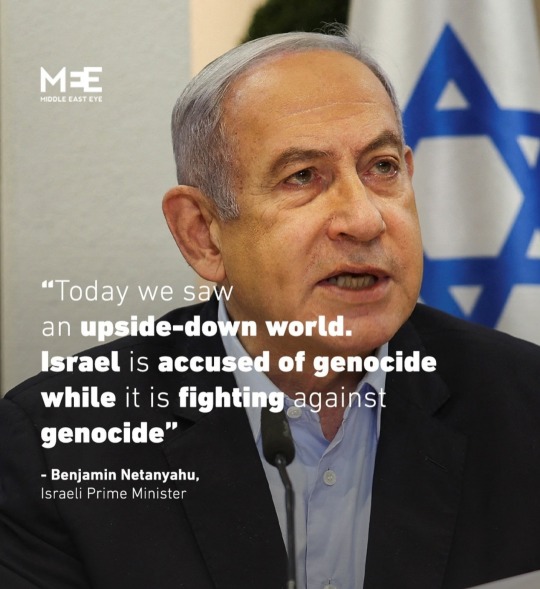



They REALLY need to come up with a new card to play. You can't accuse the majority of the planet of being Hamas and/or antisemites because you are FINALLY being expected to be held accountable. Laws and rules applying to your GOVERNMENT have nothing to do with your religion. It is YOU that continue to conflate the 2 because it's the only (tired) "defense" you can come up with. Ridiculous!

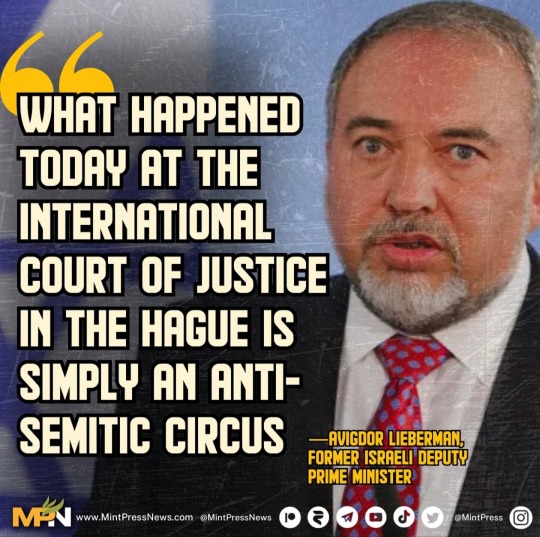
#no accountability#accountability isnt anti semitism#israel isnt above the law#grow up#fuck around and find out#israel is committing genocide#genocide#the US is complicit in genocide#israel is an apartheid state#apartheid#ethnic cleansing#collective punishment#illegal occupation#stand with palestine#stand up for humanity#international humanitarian law#international court of justice#icj#israeli war crimes#save palestine#free palestine 🇵🇸#the world is watching#stolen futures#stolen culture#stolen lives#stolen land#stolen history#settler colonialism#netanyahu is a war criminal#the entire Israeli government are genocidal sociopaths
43 notes
·
View notes
Text
Ethical Dilemmas in AI Warfare: A Case for Regulation
Introduction: The Ethical Quandaries of AI in Warfare
As artificial intelligence (AI) continues to evolve, its application in warfare presents unprecedented ethical dilemmas. The use of AI-driven autonomous weapon systems (AWS) and other military AI technologies blurs the line between human control and machine decision-making. This raises concerns about accountability, the distinction between combatants and civilians, and compliance with international humanitarian laws (IHL). In response, several international efforts are underway to regulate AI in warfare, yet nations like India and China exhibit different approaches to AI governance in military contexts.
International Efforts to Regulate AI in Conflict
Global bodies, such as the United Nations, have initiated discussions around the development and regulation of Lethal Autonomous Weapon Systems (LAWS). The Convention on Certain Conventional Weapons (CCW), which focuses on banning inhumane and indiscriminate weapons, has seen significant debate over LAWS. However, despite growing concern, no binding agreement has been reached on the use of autonomous weapons. While many nations push for "meaningful human control" over AI systems in warfare, there remains a lack of consensus on how to implement such controls effectively.
The ethical concerns of deploying AI in warfare revolve around three main principles: the ability of machines to distinguish between combatants and civilians (Principle of Distinction), proportionality in attacks, and accountability for violations of IHL. Without clear regulations, these ethical dilemmas remain unresolved, posing risks to both human rights and global security.
India and China’s Positions on International AI Governance
India’s Approach: Ethical and Inclusive AI
India has advocated for responsible AI development, stressing the need for ethical frameworks that prioritize human rights and international norms. As a founding member of the Global Partnership on Artificial Intelligence (GPAI), India has aligned itself with nations that promote responsible AI grounded in transparency, diversity, and inclusivity. India's stance in international forums has been cautious, emphasizing the need for human control in military AI applications and adherence to international laws like the Geneva Conventions. India’s approach aims to balance AI development with a focus on protecting individual privacy and upholding ethical standards.
However, India’s military applications of AI are still in the early stages of development, and while India participates in the dialogue on LAWS, it has not committed to a clear regulatory framework for AI in warfare. India's involvement in global governance forums like the GPAI reflects its intent to play an active role in shaping international standards, yet its domestic capabilities and AI readiness in the defense sector need further strengthening.
China’s Approach: AI for Strategic Dominance
In contrast, China’s AI strategy is driven by its pursuit of global dominance in technology and military power. China's "New Generation Artificial Intelligence Development Plan" (2017) explicitly calls for integrating AI across all sectors, including the military. This includes the development of autonomous systems that enhance China's military capabilities in surveillance, cyber warfare, and autonomous weapons. China's approach to AI governance emphasizes national security and technological leadership, with significant state investment in AI research, especially in defense.
While China participates in international AI discussions, it has been more reluctant to commit to restrictive regulations on LAWS. China's participation in forums like the ISO/IEC Joint Technical Committee for AI standards reveals its intent to influence international AI governance in ways that align with its strategic interests. China's reluctance to adopt stringent ethical constraints on military AI reflects its broader ambitions of using AI to achieve technological superiority, even if it means bypassing some of the ethical concerns raised by other nations.
The Need for Global AI Regulations in Warfare
The divergence between India and China’s positions underscores the complexities of establishing a universal framework for AI governance in military contexts. While India pushes for ethical AI, China's approach highlights the tension between technological advancement and ethical oversight. The risk of unregulated AI in warfare lies in the potential for escalation, as autonomous systems can make decisions faster than humans, increasing the risk of unintended conflicts.
International efforts, such as the CCW discussions, must reconcile these differing national interests while prioritizing global security. A comprehensive regulatory framework that ensures meaningful human control over AI systems, transparency in decision-making, and accountability for violations of international laws is essential to mitigate the ethical risks posed by military AI.
Conclusion
The ethical dilemmas surrounding AI in warfare are vast, ranging from concerns about human accountability to the potential for indiscriminate violence. India’s cautious and ethical approach contrasts sharply with China’s strategic, technology-driven ambitions. The global community must work towards creating binding regulations that reflect both the ethical considerations and the realities of AI-driven military advancements. Only through comprehensive international cooperation can the risks of AI warfare be effectively managed and minimized.
#AI ethics#AI in warfare#Autonomous weapons#Military AI#AI regulation#Ethical AI#Lethal autonomous weapons#AI accountability#International humanitarian law#AI and global security#India AI strategy#China AI strategy#AI governance#UN AI regulation#AI and human rights#Global AI regulations#Military technology#AI-driven conflict#Responsible AI#AI and international law
0 notes
Text
75 Years of Geneva Conventions: A Renewed Commitment to Upholding International Humanitarian Law - Panel Discussion.
Panel Discussion organized by Switzerland and Sierra Leone on the occasion of Security Council Members visit to Geneva - "75 Years of Geneva Conventions: A Renewed Commitment to Upholding International Humanitarian Law "
Watch the Panel Discussion on 75 Years of Geneva Conventions: A Renewed Commitment to Upholding International Humanitarian Law!

#international humanitarian law#UNOG#geneva conventions#we all agree on#panel discussion#humanitarian crisis#humanitarian aid#A Renewed Commitment
0 notes